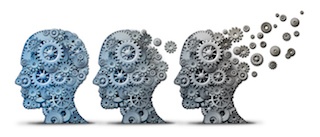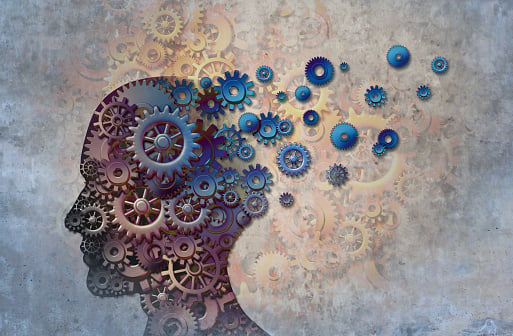As we age, our brains lose weight, shrinking by a few ounces by the age of 80. Because we are losing mostly water weight, our brains actually dry out, something that can’t be addressed by drinking more water or living in cooler climates.
What isn’t true: Significant amounts of brain cells are lost during the aging process. In fact, the process is much more subtle. Psychology Today provides a great summary of sensory changes related to brain changes: “Overall, it simply requires more to get our brain's attention. Older people need stronger light to read something, louder volume to hear the music playing, stronger pressure to sense touching and stronger tastes and odors to enjoy food or wine. Oddly, sweet and fruity odors are the most vulnerable to age-related changes while musky or spicy odors are relatively stable with aging.”
As the hippocampus shrinks, there can be a lessening in spatial orientation, and changes in “inductive reasoning, spatial orientation and verbal memory.” This brain decline really begins as early as the end of puberty and slowly continues, but it may take a while until any changes are noticeable.
Another article from Psychology Today notes how a loss of brain connectivity occurs because the synapse density in the brain’s frontal lobes decrease with age. Why does that happen? One theory is that there is oxidation damage. During metabolic processes, the body creates a type of oxygen that is highly reactive and, if it isn’t properly removed, it can damage neurons in the brain. Special enzymes in our bodies remove this oxygen, but their ability to do so diminishes with age.
A more recent theory suggests that brain cells that exist around neurons (glia cells) change with age, which “may have a knock-on effect.” Glia also are associated with the inflammation process, producing substances that ultimately can damage the brain. As inflammation increases with age, the inflammation-triggered substances of the glia can affect the brain.
As people age, they are more likely to become diabetic, and hormones that regular blood sugar can impact the brain. Obesity can alter those hormones, as well, and therefore can contribute to brain aging — and, for more information, the Psychology Today articles contain even more possibilities about how the brain might change with age.
Brain Study Overview
If your brain is found to be older than your chronological age, a LiveScience.com article shares, something bad might be happening; the article is quoting a British neurologist who conducted a study that predicted brain age via artificial intelligence. More than 650 people, aged 81 and up, participated in the study — and their scans were compared with ones taken when these same people were 73 years old. If someone’s brain was considered older than their chronological age, it was noted how they also scored worse on cognitive tests, as well as on medical tests. Future studies are planned to study this issue further.
Delaying Brain Aging
You do have some control over this process, fortunately. A Harvard publication lists 12 different ways to keep your brain young, ranging from engaging in mentally stimulating activities to exercising and improving your diet, managing your blood pressure, blood sugar and cholesterol, and avoiding tobacco and too much alcohol. “Care for your emotions,” as well, dealing with any depression or anxiety, and addressing sleep issues, and focus on building social ties and keeping them strong.














